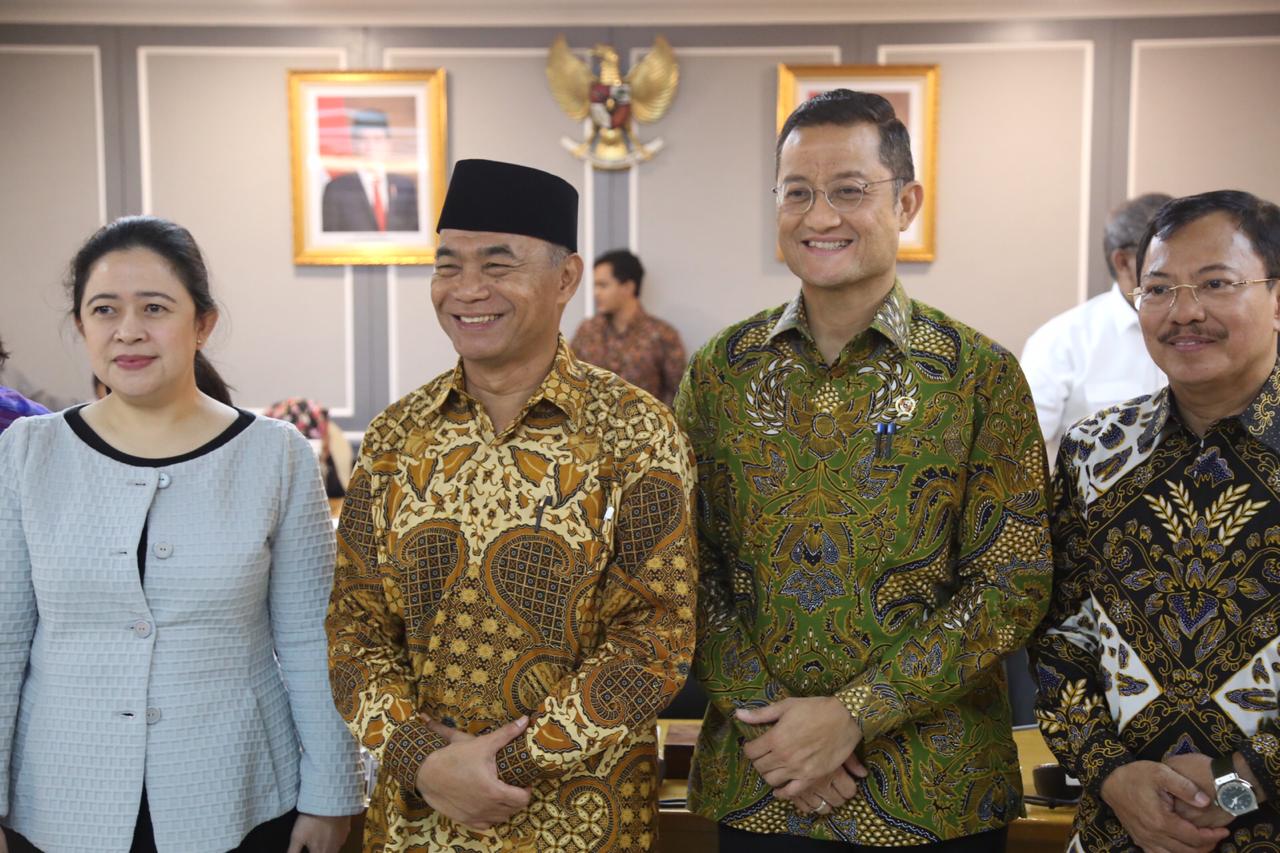Ministry of Social Affairs Accelerates the Improvement and Updating of PBI-JKN Data

JAKARTA (February 18, 2020) - The Ministry of Social Affairs ensures that it always guides the laws and regulations in providing subsidies for the poor and disadvantaged.
To ensure that subsidies for the community are channeled on target, the Ministry of Social Affairs continues to improve the quality of Integrated Social Welfare Data (DTKS). In line with the mandate of Law No. 13 of 2011 on Poverty management, the data updating process starts from the verification and validation process in the regions to be approved by the Minister of Social Affairs.
"The role of local governments in improving the quality of DTKS is very important. Because the flow of data verification and validation starts from the bottom, or from the regions. Later at the center, the Minister of Social Affairs will approve the data four times a year," said Minister of Social Affairs Juliari P. Batubara at the Joint DPR Working Meeting, at the DPR / MPR Complex Senayan, Jakarta, Tuesday (18/02/2020).
The meeting, which was chaired by Deputy Speaker of the House Muhaimin Iskandar and attended by Speaker of the House Puan Maharani, Deputy Speaker Sufmi Dasco Ahmad, and Deputy Speaker Rachmat Gobel, discussed three main agendas.
Namely, the issue of the increase in contributions for Non-Wage Receiving Workers (PBPU) and Class III Non-Workers; discussing data on participants of Contribution Assistance Recipients (PBI); and the role of local governments in the JKN Program.
In this meeting, the PBPU or class III independent participants who are considered incapable with a population of 19.9 million people were discussed. The Minister of Social Affairs continues to update the data entered by DTKS.
"So I propose that these 19.9 million people be included in DTKS. If they are included in DTKS, they are eligible to receive subsidies. But I emphasize, we will see first. Not necessarily from 19.9 million will 100% enter PBI," said the Minister.
To ensure how many of the 19.9 are eligible to receive PBI, data verification and validation (vervali) needs to be done. "Well, I hope the Ministry of Home Affairs needs to improve coordination so that officials in the regions move to verify the data," said Juliari.
In addition, the Minister asked all parties to proactively update the data of poor people whose NIK could not be matched with Population and Civil Registration Office data.
In improving the quality of PBI JK data, last year, the Ministry of Social Affairs has replaced as many as 9.2 million PBI JK outside DTKS with data on poor and disadvantaged people who have been recorded in DTKS. The replacement of PBI JK data is based on several things, including because the NIK with status cannot be matched with Population and Civil Registration Office data, has died, or has double data.
"The central and regional governments need to work together to update the data of the poor and disadvantaged. Local governments can mobilize social Office employees. While the Ministry of Social Affairs can mobilize PKH companions," said Juliari.
The Minister stated that he is continuing to coordinate and check in the field with related parties, including with the Directorate General of Population and Civil Registry of the Ministry of Home Affairs. With the role of assistants and local government officials, the Minister hopes that data matching will run in two directions.
"So it goes both ways. Both from the center and also from the regions. So the results of verification from villages and sub-districts can be tiered up. It must be a little aggressive. There is no need to target when it will be completed, but we will see the results later," said Juliari.
The flagship programs in question are the Smart Indonesia Program (KIP), the Contribution Assistance Recipient - Health Insurance (PBI-JK), as well as PKH and Non-Cash Food Assistance (BPNT) or the Basic Food Program. "Without the clarity of NIK, it is feared that the assistance cannot be distributed in a targeted manner," said the Minister.
The Ministry of Social Affairs appreciates regions that are very responsive in data verification. On the last occasion, there were five regions that were considered very active in data verification and validation. Respectively, Central Jakarta City at 99.2%, Padang Panjang City at 96.6%, and Karimun Regency at 94.9%. Then Murung Raya Regency (Central Kalimantan) at 92.8%, and Muara Enim Regency in South Sumatra at 89%.
Chairman of Commission VIII Yandri Susanto and Vice Chairman of Commission VIII Tb. Ace Hasan Syadzily both emphasized that there is good and constructive cooperation between the Ministry of Social Affairs and Commission VIII, to improve the quality of DTKS.
Together with Commission VIII, the Ministry of Social Affairs also works together to improve data integrity through the Working Committee on Data Verification and Validation. "We encourage further coordination between the Ministry of Social Affairs and the Ministry of Home Affairs. Because there is data that must be matched," said Ace.
Public Relations Bureau
Ministry of Social Affairs
 English
English
 Bahasa
Bahasa
